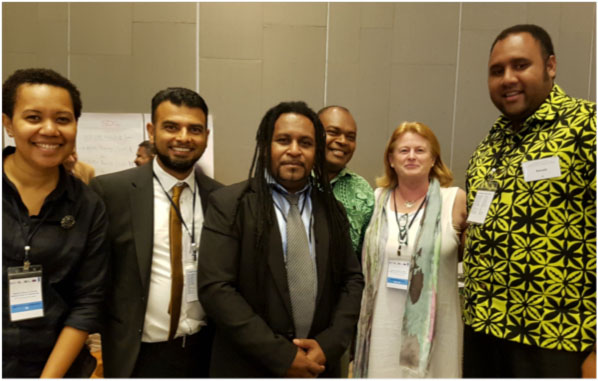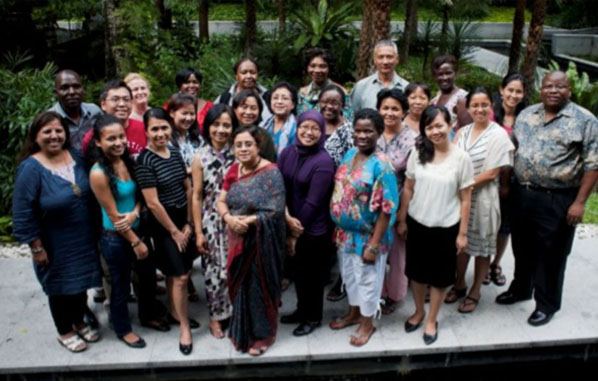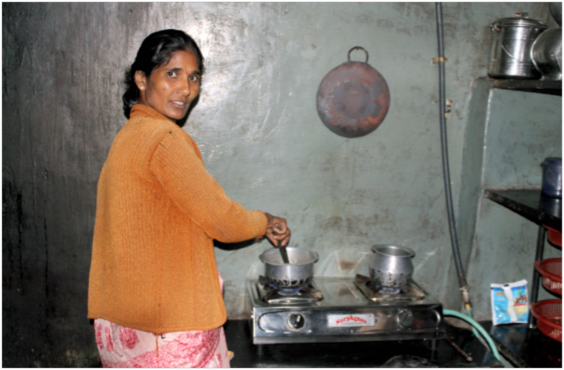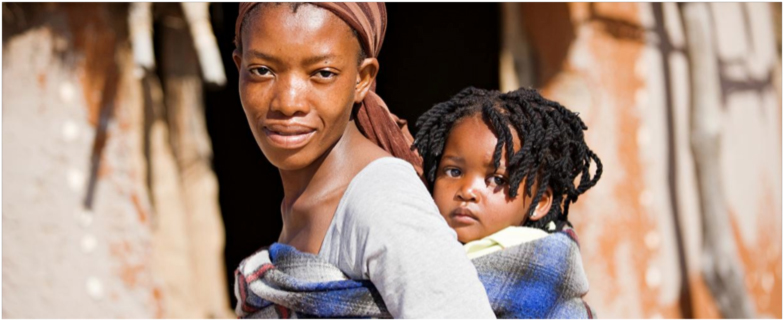The Women and Climate Impact Fund aims to transform women’s lives by mobilizing investments in climate projects that contribute to women’s empowerment and measure impacts using the W+™ Standard.
At this time, we are seeking catalytic philanthropic funding and climate or gender lens funders interested in co-funding opportunities.
Please contact Jeannette Gurung at jeannettegurung@wocan.org.
What we do

The Women and Climate Impact Fund will focus on making co-investments with leading globally recognized institutions, governments and project developers across environmental projects in renewable energy, water, waste and resource recovery, sustainable food and agriculture, and sustainable forest management in the developing countries of Africa, Asia, and Latin America.

Provide Technical Assistance
We have the technical expertise to advise and provide technical assistance to project developers to design and measure the results for both women’s empowerment and climate impacts. Experts guide developers of climate–related projects, SMEs, women’s organizations and companies receiving Women and Climate Impact Fund investments to implement projects that achieve the highest possible results for both gender equality and climate action.

W+™ Standard
Projects financed by the WCI Fund incorporate the W+™ Standard into project design and execution to produce impacts on women’s social and economic empowerment from climate change mitigation and international development projects. The W+™ Standard’s rigorous methods and processes ensure investors that projects provide measurable, verifiable benefits to women, resulting in marketable “W+™ Credits” for sale to corporate, institutional or individual buyers.

SDGs: Gender Equality and Climate Action
The Fund enables investors to quantifiably and verifiably achieve their goals related to the United Nations Sustainable Development Goals # 5 (Gender Equality) and #13 (Climate Action) as well as related SDGs for poverty, food, water, land, and agriculture. Investing in women has demonstrated a Multiplier Effect that brings about significant changes, as women re-invest over 90% of their income back in their families and communities. Investing in women’s empowerment is considered to be a pre-requisite to fulfilling all of the SDGs.

Experience
WCI Fund’s founding members each have served over 30 years each in their respective careers in financial services and women’s empowerment and gender equality within agriculture and natural resource management. This powerful combination of domain experience combined with their team of professionals and partners bring long-standing global relationships with government and private sector investors, and global asset managers with a deep understanding of frontier and environmental markets.
Our experience extends beyond investments. The Fund’s founding principals have over 12 years of working on projects with WOCAN in; Capacity Building impacting women in 15 countries, Women’s Leadership and Gender impacting women in 4 countries, and Technical Assistance for the W+™ Standard covering 5 Domains impacting women in 10 countries.
Strategy
Investing at the intersection of climate and gender provides a compelling opportunity to improve the lives of rural women while making climate investments more effective and equitable. We will make co-investments with leading recognized institutions in projects that support women’s empowerment with commercially viable projects in renewable energy, water, waste and resource recovery, and sustainable agriculture, and forest management. Projects will issue W+™ credits along with GHG credits, that can be monetized to enhance a project’s performance and sustainability, and return profits to investors and women’s groups within each project.
The Women and Climate Impact Fund enables investors to quantifiably and verifiably achieve their goals their investments to United Nations Sustainable Development Goals # 5 (Gender Equality) and #13 (Climate Action) as well as related SDGs for poverty, food, water, land, and agriculture. Investing in women has demonstrated a Multiplier Effect that brings about significant changes, as women re-invest over 90% of their income back in their families and communities.
Pipeline

Biogas to reduce GHG emissions and support community development in India
The FairClimate Fund is a social venture that invests in clean cooking solutions for low-income households and trades carbon credits generated from these community- based projects. FCF is building 12,000 biogas installations for households the operate on manure, to reduce 3 tons of CO₂ per year. The biogas unit produces clean energy, reduces deforestation, and provides more time for women to focus on income-generating activities. The biogas slurry is a rich source of fertilizer that also increases crop productivity. After 9 years, the biogas unit is paid off in the form of carbon credits and the families obtain the right to sell the carbon credits themselves.
A sample FCF project has provided upfront financing to enable the production and dissemination of 18,000 biogas installations in the Kolar District in Karnataka, with the Coolie Sangha- a 25-year-old membership- based people’s organization – that implements various grassroots planned development activities, including providing credit for Coolie women, activities to support young widows and deserted women, a village level decentralized credit activity, agricultural development, and domestic renewable energy projects such as biogas.

Free health clinics and clean water through hydropower
The South Pole Group in western Uganda provides this rural region with reliable and sustainable energy from hydropower, to displace diesel generators and wood-fired heating and lighting. This leads to better indoor/outdoor air quality, reduces respiratory and eye diseases. The project provides benefits to women through funding a clinic and maternity ward, piped water supply system, a tertiary education program for women, and reforestation of the watershed.

Biomass supporting local livelihoods and women’s empowerment
In China’s westernmost province of Xinjiang (Uyghur Autonomous Region) near the border with Tajikistan and Kyrgyzstan, the South Pole Group manages a project to replace fossil fuel use by utilizing local surplus biomass from cotton growing – the main economic activity – to generate sustainable electricity for the rural areas. The project provides clean energy, jobs, and benefits to farmers who sell their biomass for additional income. Women of the area have benefited from jobs, income from the biomass sales, and free fertilizer that increases the productivity of their agricultural crops.

Forest Conservation with Benefits for Women in Zimbabwe
In northern Zimbabwe, the South Pole Group implements the Kariba REDD+ Community Development project to protect forests and provide sustainable livelihood opportunities for poor communities in a region suffering heavily from deforestation, poverty, and drought. Its aim is to reduce deforestation and forest degradation through a range of activities such as conservation farming, health care centers, community gardens, and family-based micro-businesses, proposed by local communities and supported by carbon finance.

Building Women’s Leadership for Clean Energy and Sustainable Agriculture in India
In India, the Swayam Shikshan Prayog enables women as leaders and entrepreneurs, through support to social enterprises and initiatives that offer a range of skill-building, livelihoods, agricultural and health-enhancing opportunities to rural women, youth and communities. SSP partners with a consortium of 5,500 self-help groups (SHGs) in marginalized regions to provide clean energy, affordable health, and sanitation and adopt climate-smart agriculture practices. Operating at the nexus of nutrition, sustainable agriculture, and gender, Swayam Shikshan Prayog empowers 72,000 women in the drought-prone state of Maharashtra to act as agricultural decision-makers, improving their health, food security, and economic well-being.
